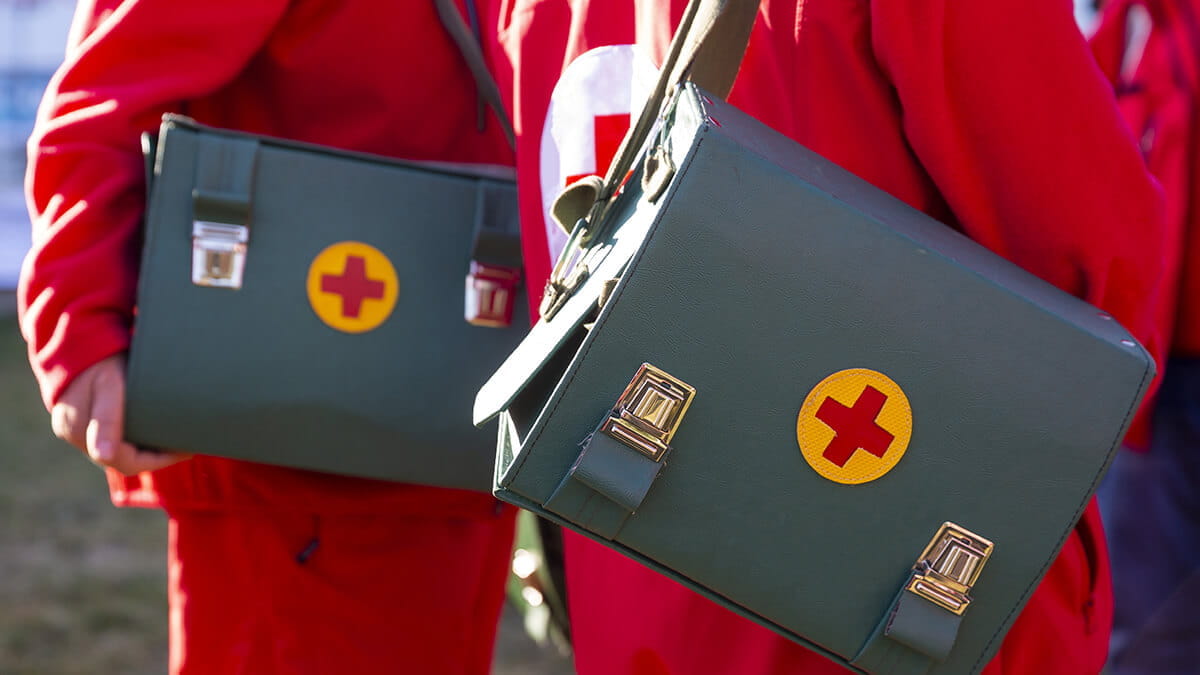Disasters and other catastrophic events strain the resources of the communities in which they occur. Whether it is an earthquake, hurricane, tornado, volcanic eruption, or pandemic flu, it can be challenging for a community to cope. In these cases, communities will look to disaster medical assistance teams (DMATs) to help those in immediate need. Being part of a DMAT can be a great way for someone who has earned a master’s degree in nursing to help provide emergency medical care. Let’s take a closer look at what a DMAT is and how someone with an MSN degree can play a vital role.
What Is a Disaster Medical Assistance Team (DMAT)?
A DMAT typically provides healthcare services after a disaster. Their role is to arrive on the scene very soon after a disaster happens—generally within 48 to 72 hours. Community resources can easily be overwhelmed by a disaster. Emergency rooms can become full and primary care resources might not be available. A DMAT can provide much-needed services to supplement the community’s resources.1
How Does a DMAT Help?
Disaster medical assistance teams play a critical role in treating the sick and injured in the aftermath of a crisis. A DMAT can set up temporary medical facilities to aid hospitals that might be damaged or be used as additional personnel in hospitals overwhelmed with patients. Some DMATs also provide specialized behavioral health services to help people in the disaster area cope with the recent events.2 A disaster medical assistance team helps provide healthcare services to the affected area in any capacity the community needs.
Who Serves on a DMAT?
A DMAT never knows a community’s exact needs before they arrive. This means they need to be prepared for nearly anything, so having a range of medical professionals on the team is critical. A typical DMAT will consist of nurse practitioners, physician assistants, paramedics, pharmacists, information technology experts, and others.3 This diverse team of professionals ensures the DMAT can provide a variety of medical services.
What Makes a Good DMAT Member?
Not every nurse practitioner or medical assistant makes a good DMAT member. Some of the most important qualities needed in a DMAT member include being committed, flexible, prepared, and determined.4 Disaster medical assistance team members are all volunteers who need to be ready to deploy quickly. Typically, service on a DMAT will last between 10 to 14 days.5 That means a team member must have an employer that understand they may need to be away for up to two weeks on short notice.
It takes diverse skills to work on a DMAT and individuals with a Master of Science in Nursing (MSN) can be great members of the team because they bring important skills and training. If working on a DMAT seems like a good fit, then earning an MSN degree could be the right path. One of the best ways to earn your Master of Science in Nursing degree is through an accredited online university. You can acquire the skills you need to serve as a DMAT member while continuing to meet your personal and professional commitments.
Walden University is an accredited institution offering a Master of Science in Nursing (MSN) degree program online. Earn your degree using a convenient, flexible learning platform that fits your busy life.
1Source: www.ncbi.nlm.nih.gov/pmc/articles/PMC4910129/
2Source: https://asprwgpublic.hhs.gov/ASPR/hhscapabilities/resourcedocs/Disaster%20Medical%20Assistance%20Teams%20(DMAT).pdf
3Source: www.phe.gov/Preparedness/responders/ndms/ndms-teams/Pages/dmat.aspx
4Source: https://atspec.com/default.aspx/MenuItemID/111/MenuGroup/Home.htm
5Source: www.acep.org/how-we-serve/sections/disaster-medicine/news/disaster-response-planning-and-coordination/federal-disaster-agencies-and-response/what-is-a-disaster-medical-assistance-team-dmat-including-an-excerpt-from-the-ndms-web-site/#sm.00002p188b9yfct9zpv2qpgggt85v
Walden University is accredited by The Higher Learning Commission, www.hlcommission.org.




